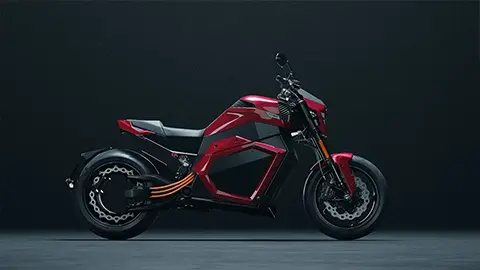Toyota Offers Another Path to Zero Emissions
While electric cars get most of the attention when we speak about zero-emissions vehicles, battery-powered vehicles aren’t the only way to eliminate harmful tailpipe emissions. Indeed, hydrogen power, which has been on the fringes of automotive technology for many decades, is also a credible path to zero emissions, and also offers the added advantage of much faster refueling. Hydrogen vehicles can either be powered by fuel cells, which act as an on-board power generator, or through the combustion of hydrogen in an engine; both have their advantages, and Toyota is one automaker that continues to invest in both as it explores ways to reduce its carbon footprint.
Hydrogen combustion engines, which we’ve detailed before in GreenCars, are a great fit for sportier vehicles, because they still use an engine and gearbox – key components of making the driving experience more exciting and involving. Toyota has successfully raced hydrogen combustion vehicles in past years – but those race cars have always been powered by gaseous hydrogen, which has to be held in a large, heavy, pressurized tank. Having to store gaseous hydrogen under pressure makes the fuel’s use complicated for production cars, as the tanks are heavy and can eat into precious storage space.

Liquid Hydrogen Race Car
This year, Toyota rolled out a GR Corolla race car powered by liquid fuel at Fuji Speedway in Japan. It was the world’s first liquid hydrogen-powered vehicle to run on a racetrack, and completed three sessions under simulated race conditions. Running flat-out, it shared the track with other race cars and even completed a number of pit stops under racing conditions. After the successful completion of the test, Toyota announced that its team will compete in the 2023 Super Taikyu racing series that kicks off in March in Japan. Doing so will accelerate efforts to expand fuel options in pursuit of a carbon-neutral society.
Using liquid hydrogen has several advantages. It has a greater energy density per unit volume, meaning increased driving range for every unit of fuel. And not requiring large, cylindrical high-pressure fuel tanks means that the fuel can be stored in conventionally-shaped tanks, which don’t need to be under high pressure, offering improved packaging efficiency. Liquid fuel also allows for hydrogen fueling stations to have much more compact tanks, reduces the footprint of fueling stations, and reduces the size of transport trucks. Because refueling doesn’t need to be done under pressure, multiple vehicles can be filled at the same time.

Challenges to Overcome
There is one big issue to overcome, however. In order to be in liquid form, hydrogen needs to be cooled to a very low temperature -253 degrees Celsius, in fact. If storage tanks – at gas stations or in the car – heat up – the fuel can vaporize, reducing its efficiency. That Toyota was able to complete a number of sessions and perform rapid pit stops with much more compact storage tanks shows that there’s potential in the liquid solution, however.
Driver Masahiro Sasaki explained the challenge by saying, “We’re fighting to create a future for the internal combustion engine by tackling a technology deemed unfeasible for cars, in the uncharted territory of -253°C. While various hurdles still remain, as with gaseous hydrogen we hope that our agile development on the racetrack will feed back into everyday cars.”
















